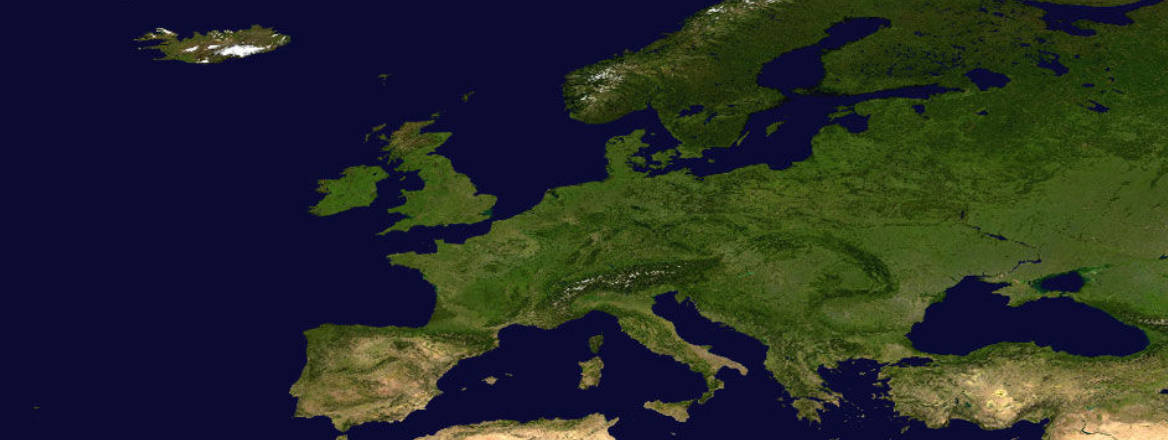The Dutch rejection of an EU deal with Ukraine will not change much in Europe’s relations with its neighbour. But the referendum result is a serious warning for established European politicians and a barometer of a rising backlash against the EU throughout the continent.
It may be that the future disposition of Europe will be decided not by a set of seminal historic events and geostrategic shifts, but by a mixture of tragicomedies and farces like the Dutch referendum this week, in which a third of the Dutch electorate voted by a majority of three-fifths to reject an EU agreement with Ukraine.
For although the Dutch vote will go down in history as an uncharacteristic act from a nation otherwise legendary for both its sobriety and profoundly positive contribution to Europe, the referendum does raise some unpleasant questions about the future of the continent. With months before the people of Britain face a crucial vote on whether to stay in or leave the EU, the outcome of the British referendum could be heavily influenced by what has just happened in the Netherlands.
In theory, the two ballots have little in common. The Dutch were not called upon to rule on the EU’s future; they were merely asked whether to approve the deal with Ukraine. And, unlike the British referendum, whose result is essentially binding on the UK government, the Dutch vote is merely advisory for the country’s authorities. Nevertheless, the Dutch referendum is very much part of a mounting Europe-wide backlash against the continent’s political establishment. So, the events in the Netherlands are very relevant to the current referendum campaign in the UK.
Since any deal with Ukraine was bound to incur Russia’s wrath, but also because Ukraine’s corruption-plagued economy remains severely handicapped, the deal is modest in intent: it is about easing trade, opening up business opportunities and facilitating a whole host of other activities – including travel – between Ukraine and the EU. It offers no guarantee of future EU membership, and does not grant Ukrainians the right to work in the EU. So, since Ukraine is hardly an economic giant likely to threaten Europe’s economy, it is difficult to see how anyone would have reasonably objected to ratification.
But the Dutch referendum was not about Ukraine as such; it was a proxy for the future of the Netherlands within the EU. The prime mover behind the referendum was GeenStijl, a popular Dutch anti-establishment blog whose name loosely translates as ‘no class’ or ‘no style’; it teamed up with two other Eurosceptic organisations in collecting the 300,000 signatures required to force a vote. GeenStijl admitted all along that it was only using Ukraine in order to force through ‘a real national EU referendum’, similar to that offered to the British on 23 June.
And because GeenStijl’s initiative proved popular, domestic politicians of every stripe jumped on its bandwagon. Mr Geert Wilders, leader of the nationalist, right-wing and anti-immigrant Party for Freedom urged voters to reject the Ukraine treaty because it ‘means more Europe’ – a concept he never defined.
Such also was the reaction on the left. The Socialist Party, the Netherlands’ largest opposition party, urged the Ukraine treaty dismissed because, allegedly, ‘it will only benefit multinational companies’. Meanwhile, the Dutch Party for the Animals dislikes Ukraine because the country apparently fails to protect animal welfare: ‘Ukrainian eggs come from huge battery cages’, party leader Marianne Thieme recently claimed in the local media.
In the event, only 32.2 per cent of those entitled to vote cast their ballots, although 61.1 per cent voted No. ‘If the Dutch vote no, Europe will have a problem’, EU Commission President Jean-Claude Juncker recently admitted. Now, however, Mr Juncker will probably discover that Europe does not, after all have a problem. But it does, and a big one.
Since ratification of treaties such as those with Ukraine requires the unanimous approval of all 28 EU member states, the Ukraine deal cannot technically proceed unless the Dutch government chooses to ignore its electorate, which it has said it will not. One way around the problem exists: the treaty has already been applied and this ‘temporary’ operation could continue without the treaty being either ratified or renegotiated. But such an approach will only open the EU to accusations that it ultimately ignores votes it does not like. It is difficult to see how either the Dutch government or the EU would emerge with credit from this.
The ramifications of this episode go even further. To start with, the Dutch referendum is a classic example of how the continental debate about the future of the EU is escaping from the control of mainstream politicians and established parties: the vote was forced though by a grassroots movement. It is also a story of unintended consequences. The Dutch government introduced new legislation which allowed for referendums, hoping that this would take the sting out of anti-EU feelings and create more accountability in the Dutch interactions with the EU. In fact, all that the measure has achieved is to give Eurosceptics a new line of attack, and on frivolous grounds.
Furthermore, the Dutch Nee will embolden Eurosceptics in Britain who will no doubt claim that, if the Dutch have the guts to reject one treaty, the Brits could do even better by rejecting the entire EU. Incidentally, it is interesting to see how Mr Nigel Farage, the leader of the UK Independence Party, considered it ‘absolutely normal’ for him to visit the Netherlands and to campaign there for a No vote; one has to wonder what his reaction would be if foreign politicians were to intervene in Britain’s referendum campaign. What is good for the goose is, evidently, not good for the gander on such matters.
But probably the biggest problem is that the victory of the Nee-sayers in the Netherlands will also be interpreted as vindication for those in Britain who have long believed that they do not require serious arguments to persuade voters to leave the EU; all they need to do is portray the EU as a remote institution, ruled by unelected bureaucrats, which strikes deals with unwanted poverty-stricken foreigners who, in turn, come to ‘steal’ European jobs.
Fiction is, therefore, as good as facts in this instance; the Dutch referendum is a grim reminder that sustained, atavistic opposition to the EU is far from being just a peculiar British syndrome. The trend may have started in Britain, but it is now a continent-wide disease.
WRITTEN BY
Jonathan Eyal
Associate Director, Strategic Research Partnerships
RUSI International


